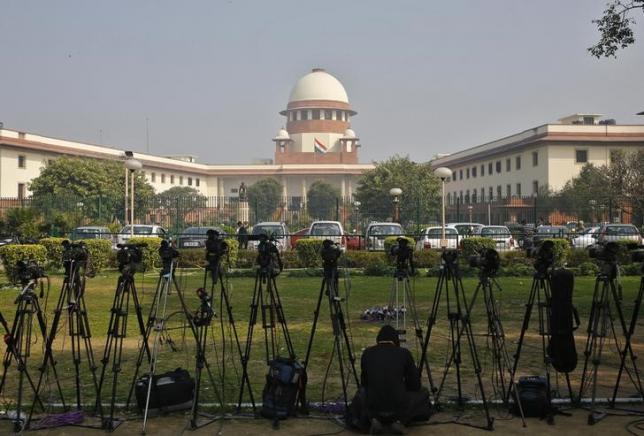
India's Supreme Court on Friday upheld the constitutional validity of the criminal defamation law, which had been challenged by petitioners including political rivals such as BJP MP Subramanian Swamy, Congress vice president Rahul Gandhi and Delhi Chief Minister Arvind Kejriwal.
The petitioners had questioned the constitutional validity of Sections 499 and 500 of the Indian Penal Code (IPC), which provide for criminal defamation and prescribe a maximum sentence of two years' imprisonment for defamation. The Editors' Guild of India had also criticised the law, according to the Hindustan Times.
The NDA government at the Centre and several state governments had, however, supported the law that criminalises defamation, stating that it will deter people from maligning other's reputation.
The top court, however, urged caution while suing someone for defamation.
"We have directed magistrates across the country to observe extreme caution while issuing summons in private defamation complaints," the court said, according to the Press Trust of India.
The supreme court maintained that the defamation law will not impinge on free speech.
"Right to free speech is not absolute. It does not mean freedom to hurt another's reputation which is protected under Article 21 of the Constitution," the court said.

















